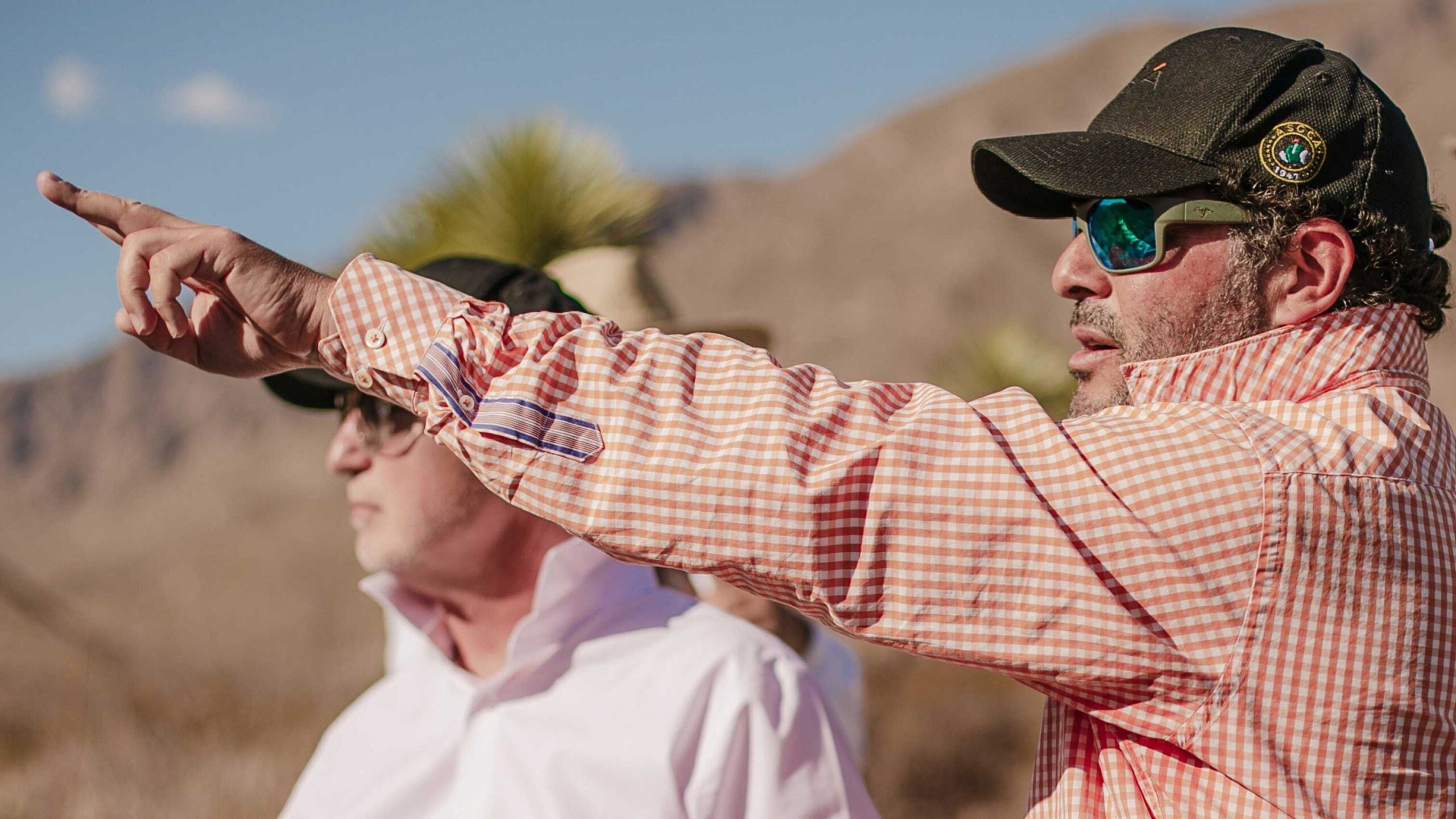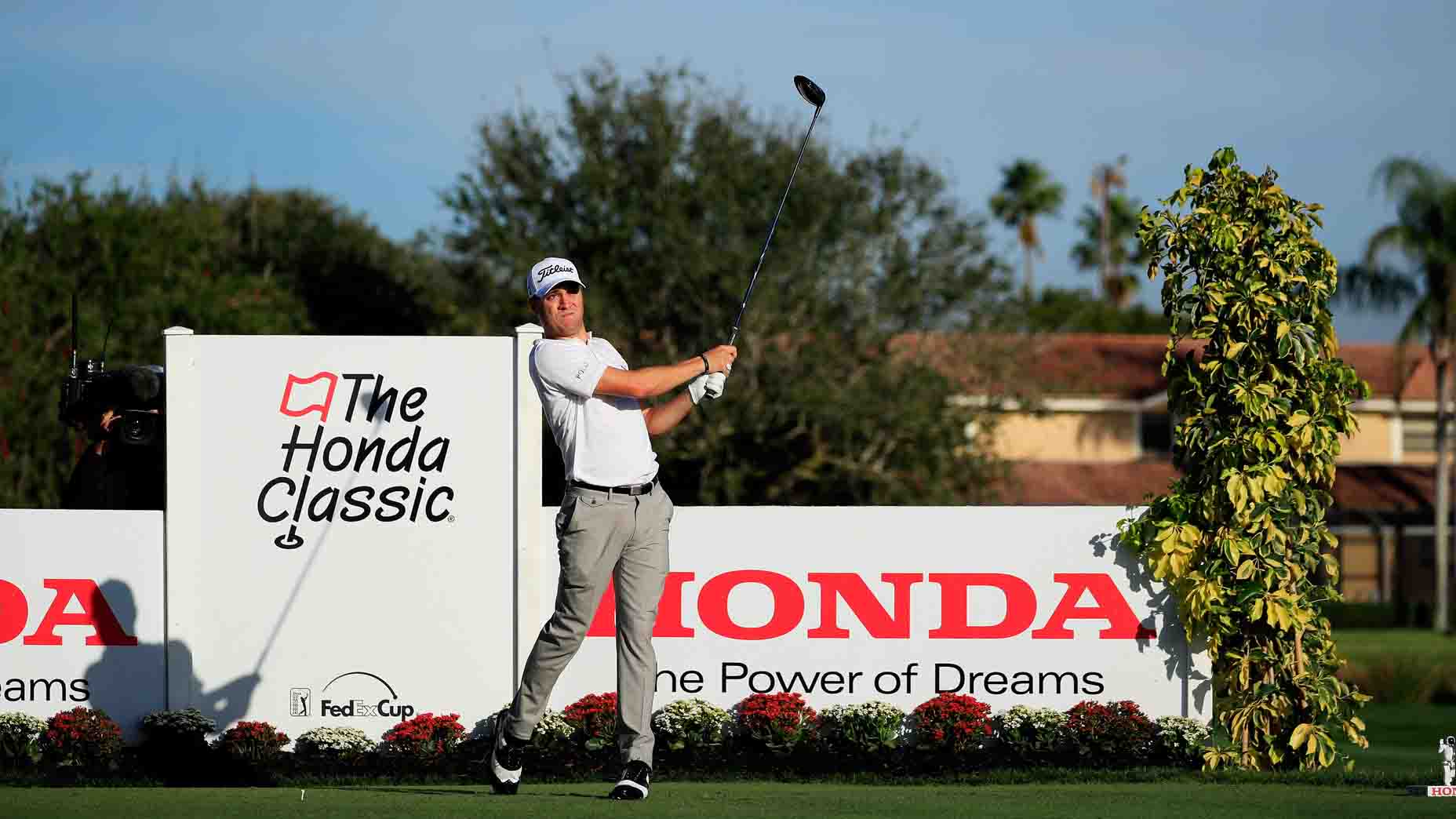Check in every Sunday night for the unfiltered opinions of our writers and editors as they discuss the hottest topics in the sport, and join the conversation by tweeting us @golf_com. This week we discuss whether PGA Tour pros will embrace the rules changes, whether the sport has a profanity problem, what major week and course our staff is most amped for in 2019, and much more.
1. Canadian pros Mackenzie Hughes and Graham DeLaet recently took to Twitter to voice their opinions on certain rules changes for 2019, and not all of them were flattering. “I think they were trying to simplify the game but after watching them explain the new rules I don’t think they accomplished that,” Hughes said, pointing to the new dropping procedure which players to drop from knee height and the provision that allows players to replace damaged clubs mid-round. Added DeLaet: “How they didn’t address the anchoring definition is absurd.” What kind of impact do you think the new rules will have on Tour next year? Are they likely to bring more clarity or controversy?
John Wood, caddie for Matt Kuchar (@johnwould): No difference, at least on tour. Yes, I think in general the new rules will make things easier, but with how much is at stake during every decision involving a rule, most of the guys will still call in rules officials for most rulings. Should the players (and their caddies) know the rules enough to do things on their own? Probably, but there’s just too much at stake to risk it.
Sean Zak, associate editor (@Sean_Zak): As with all change, it’ll feel (and look) weird at first, but let’s not forget what we said right away: the new rules were better. Nothing has changed! We’ll need three or four months of play to really see how awkward or clear these decisions end up being for the pros. I’m not going to let the opinions of two pros (they play a different game) make me think any differently about the rules changes that haven’t even gone into effect yet.
Dylan Dethier, associate editor (@Dylan_Dethier): The drop-from-the-knee thing is a visual that will be a little strange to get used to. The pin in on the green thing even more so. But I think there will be about the same number of controversies, just slightly different ones now (see Woods, Tiger at the Hero). Love the outspoken Canadians, though!
Michael Bamberger, senior writer: Controversy in the short-term and clarity in the long-run. Modestly on both counts. Except for the pin in, there’s nothing here that changes the game in any fundamental way.
Josh Sens, writer (@JoshSens): It’s like emergency workers say–you’re always preparing for the last disaster. A lot of the problems we saw in recent years have been smartly addressed, but we’ll hit other snags that we can’t possibly foresee now. Meantime, still waiting for a rigidly enforced shot clock, a change that would do the game more good than any other I can think of.

2. Our Josh Berhow dug up the complaints filed to the FCC during golf telecasts in the last three years. There were no grievances in 2016 and ’17 but nine in 2018, most triggered by foul language uttered by golfers. In your experience as both an on-site reporter and on-the-couch viewer, does pro golf have a profanity problem?
Wood: S*!t no. This is just my personal feeling, but they’re just words. Can anyone out there honestly say they’ve never cursed on the golf course in a fit of anger? If a few slip out during a broadcast, I think it shows professional golf in a truer sense. Of the millions and millions of people who watched golf all year long on TV, nine felt aggrieved enough to lodge a complaint. I can live with that. But I’ve also been known to look up old on field baseball battles between Earl Weaver or Tommy Lasorda and an umpire (if you don’t mind cursing, run to YouTube and enjoy) and watch for hours on end, so maybe I’m not a fair judge.
Zak: If anything, pro golf would have a microphone problem, not a profanity problem. But that’s the price you pay when you want to hear Tiger say, “Talk to me, Joey,” or “One yard!” And last I checked, NINE people deciding to write in is not a substantial group.
Dethier: We need MORE microphones, not fewer. I can’t tell if Zak is mocking or not (a recurring problem around the office), but that player-caddie interaction is the good stuff. Players should expect whatever they say during a shot will be caught on tape (and act accordingly) but these were more amusing than offensive in my book.
Bamberger: Profanity is a sign of honesty and showing that you care. It is also the test of good vocabulary, when used appropriately. Professional golf does not have a problem here.
Sens: This is very much off-topic but John’s mention of Lasorda reminds me of one of my favorite baseball stories, relayed to me by a longtime Dodgers reporter. Often, when Lasorda went to the mound, he was just making a show of things (that’s part of the managerial code–you make a demonstration in defense of a player, say), and what looked to us on TV like Lasorda going ballistic was actually Lasorda saying to the ump, “Have you tried the manicotti at such-and-such restaurant? It’s unbelievable.” The ump would then toss Lasorda to complete the stage play. And after the game, he’d follow up on Lasorda’s manicotti recommendation. But back to the topic at hand. . . I’m with Michael. There’s no problem, except perhaps that the blue language is not nearly creative enough.
3. In 2018, Tiger Woods returned (and won), Brooks Koepka added two more majors to his total and the biggest Ryder Cup news happened off the course. Years from now, will 2018 be remembered as memorable, forgotten, or somewhere in between?
Wood: I think memorable. If only for the return to form of Tiger, and he had returned to form long before his win at The Tour Championship. Eventually, and especially if he keeps winning at this rate, Brooks Koepka will get the recognition he deserves, and history will look back very kindly on any multiple major year.
Zak: Very memorable (I hope). Every single major was riveting. Tiger at East Lake. Phil in Mexico. DJ’s drive, the Ryder Cup debacle. Rory ballin out at Arnie’s event and Bryson peaking. Significant stuff, all of it.
Dethier: Oh, yeah – super memorable. 2018 was the year we began to respect Brooks Koepka (or continued to disrespect him); the launch of Tiger Woods, Part Two (part 3? 5?); saw several new sides of Patrick Reed (Champion and U.S. hero/traitor, depending on perspective); began to appreciate Bryson, The Golfer (not just mad scientist caricatures); and saw a power struggle for title of Best Player in the World. Good year and a good setup for the next one.
Bamberger: Highly memorable. Any year where a guy wins two majors is memorable. But when one of the most iconic golfers ever contends again and finally wins after five years in the desert, that’s more than memorable.
Sens: Lots of great stuff this year, but Tiger’s return dwarfs them all in the long run.

4. Don’t look now, but the Masters is less than four months away, and the hallowed design at Augusta National is in good company: Bethpage Black (PGA), Pebble Beach (U.S. Open) and Northern Ireland’s Royal Portrush (British Open). Is this the best major rota in recent memory, and which week are you most amped for?
Wood: Pretty awesome. I’m always beyond amped for Augusta, and I’m especially amped for Royal Portrush, which I’ve never seen but is universally acknowledged as one of the best. I’m, what’s the word I’m looking for….Hopeful? for Pebble Beach. I’m a NorCal guy and I think a U.S. Open at Pebble is the pinnacle of the Championship, but I’d be lying if I said I was anything but a bit trepidatious about how the USGA will set it up. And Bethpage Black is another favorite, but that week will be dictated by weather. If we can get a reasonably warm forecast and a firm and fast course, then it will be as good as it gets.
Zak: It’s pretty damn good. Hopefully the golf is just as good. Most excited for Pebble. Never been there before. Heard it’s pretty solid 😉
Dethier: Oh yeah, these are four big-time winners. Only thing missing is something from golf’s new-school innovative course designs. Looking ahead, maybe a spot opens up in 2032?
Bamberger: It’s a spectacular lineup, especially for glory’s last shot, at Portrush. And let’s not forget about the Players at the Stadium course in March.
Sens: 2010 gave us Pebble, St. Andrews and Whistling Straits in the same year, so that’s close, but yeah, this is the best in recent memory. And Portrush is the one I can’t wait for—what a course. That it hasn’t held a major since 1951 ramps up the excitement even more.

5. Last week our resident Etiquetteist addressed how to tell your partner he’s just too darn slow. What’s your best tip for telling tortoises to pick up the pace without gravely offending them?
Wood: Well, to do it without offending them, I think you bring it up as your group is slow. If we are in a Wednesday pro-am and one of the amateurs is particularly slow, I’ll try and say something like “Gosh, guys, we are falling way behind the group in front of us. That’s my fault for not paying better attention, but let’s try and catch up and get back on pace.” I’d do the same if I were playing. Finish a hole out and say out loud to the group “Sorry guys I took a lot of time there and we’re falling behind, let’s get caught up as soon as we can.” Conversely, you can do as Fulton Allem did years ago. Fulty was keeping the scorecard of one of his playing partners who was playing spectacularly slowly. At the end of the round, rather than signing his card, he wrote across the entire card in bold letters: “YOU PLAY TOO SLOWLY!” and handed it over. Fulton was a legend to play with.
Zak: I prefer to speak with my actions. Playing out of turn works, but not as much as playing out of turn and then walking up to the green, looking backwards and encroaching upon their sight line to the pin. You don’t want me in your view? Play faster.
Dethier: Straight to the point. You can state it as fact and observation – “You’re kind of a deliberate player, huh?” and keep it good-humored. Most people don’t want to be slow, after all. They’re just oblivious.
Bamberger: One way is to employ some version of this: “I enjoy playing with you, ______. But may I make the following suggestions for the benefit of all? Leave your ball retriever in the car. And your headcovers, too. Carry fewer clubs. Constantly be advancing to your ball, even as others are playing, just be aware of what they are doing. Estimate your yardage–we’re not that good. Mark your ball as little as possible. Finish whenever possible. Do not begin a story while going from one green to the next tee. Never hit a second ball. Always have a plan.”
Sens: As John says, the best way to avoid offending is to spread the blame around: make it the group’s responsibility instead of singling out the slow player. But in the end, slow play is such a plague, I think we should spend a lot less time tiptoeing around slow players and more time directly confronting them. Slow players ARE the offense. And they’re usually so clueless about their own comportment that they need to be called out directly, so I say—don’t hold back. Let them know the truth.

6. Happy holidays! In this season of giving, give our readers one insidery golf insight from 2018 that they’re unlikely to know about.
Wood: Trying to come up with something from my point of view, the caddie, and the number one thing that comes to mind is how amazing the guys who make our yardage books are. The level of skill, of detail, they put into these is beyond incredible. When I started, the books, while valuable, were extremely basic. Mark Long, who makes the books for the PGA Tour, and Dion Stevens, who makes them in Europe, are not well known names in the golf world, but week in week out their work has so much to do with everyone’s successes on tour.
Zak: One elite Tour player’s chef believes they save him one-third of a shot a round just by cooking for him on the road. Not sure I can validate that, but I love the thought.
Dethier: In a pitch that didn’t pass muster, according to my editors, I broke down the best golfers by first name. It was a simple formula: average world ranking of the top three players of that name. For you inquiring minds, “Pat/Patrick” ranked the best, with Reed (No. 15), Cantlay (No. 18) and Perez (No. 40) averaging out to 24.3. Alexander (Schauffele, Noren, Bjork) and Justin (Rose, Thomas, Harding) tie for 2nd at 30.3. Bet you didn’t know THAT!
Bamberger: The order of play on the first tee on the PGA Tour in a Thursday and Friday threesome goes by who has won on Tour most recently. If there are no winners, the default is career money, with the highest earner going first. At home, we just flip a tee, and it points to the day’s first victim.
Sens: As a measure of comfort, I like this stat: from 150 yards, the average Tour pro leave is 23 feet from the pin. Ask the average golfer, and they’ll almost always guess that Tour pros stick it much closer from that distance—another reminder that we regular old duffers set absurd standards for ourselves and should spare ourselves the self-abuse when we don’t knock down the flagstick.






